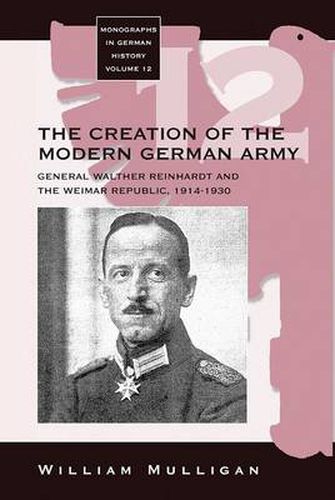Readings Newsletter
Become a Readings Member to make your shopping experience even easier.
Sign in or sign up for free!
You’re not far away from qualifying for FREE standard shipping within Australia
You’ve qualified for FREE standard shipping within Australia
The cart is loading…






Civil-military relations have been a consistent theme of the history of the Weimar Republic. This study focuses on the career of General Walther Reinhardt, the last Prussian Minister of War and the First Head of the Army Command in the Weimar Republic. Though less well known than his great rival, Hans von Seeckt, Reinhardt’s role in forming the young Reichswehr and his writings on warfare made him one of the most important and influential military figures in interwar Germany. Contrary to the conventional view that civil-military relations were fraught from the outset, the author argues, Reinhardt’s contribution to the military politics of the Weimar Republic shows that opportunities for reform and co-operation with civilian leaders existed. However, although he is primarily seen as a liberal General, this study demonstrates that he was motivated by professional military considerations and by the specter of a future war. His ideas on modern warfare were amongst the most radical of the time.
$9.00 standard shipping within Australia
FREE standard shipping within Australia for orders over $100.00
Express & International shipping calculated at checkout
Civil-military relations have been a consistent theme of the history of the Weimar Republic. This study focuses on the career of General Walther Reinhardt, the last Prussian Minister of War and the First Head of the Army Command in the Weimar Republic. Though less well known than his great rival, Hans von Seeckt, Reinhardt’s role in forming the young Reichswehr and his writings on warfare made him one of the most important and influential military figures in interwar Germany. Contrary to the conventional view that civil-military relations were fraught from the outset, the author argues, Reinhardt’s contribution to the military politics of the Weimar Republic shows that opportunities for reform and co-operation with civilian leaders existed. However, although he is primarily seen as a liberal General, this study demonstrates that he was motivated by professional military considerations and by the specter of a future war. His ideas on modern warfare were amongst the most radical of the time.